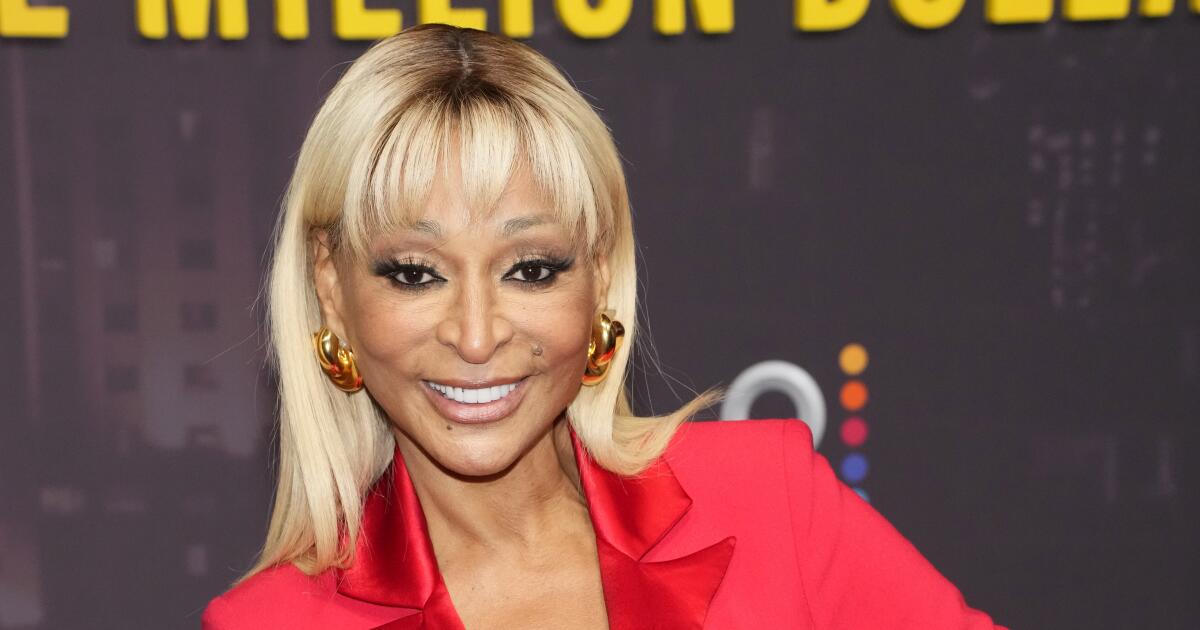Karen Huger of ‘RHOP’ breaks silence on DUI: ‘I healed myself’
“Real Housewives of Potomac” personality Karen Huger says she has turned over a new leaf nearly two years after crashing her Maserati in a drunk-driving accident.
The reality TV star, 62, on Thursday opened up about her 2024 DUI arrest and the six-month county jail sentence that followed in a conversation with Sherri Shepherd. Huger, dubbed the Grand Dame by fans, told the “Sherri” host that she is “so happy and so at peace right now to be on the other side.”
In March 2024, Maryland police arrested Huger for driving under the influence after she crashed her car into a street divider and a tree in Potomac. In addition to the DUI, Huger was also found guilty on negligent driving charges and sentenced in February 2025 to one year in jail. After serving six months in Maryland’s Montgomery County Detention Center, she was released in September.
For her sit-down with Shepherd, Huger was styled in a formfitting burnt orange dress, metallic cuffs and a chic bob. While the daytime host complimented her look, Huger said her exterior is “not a reflection of what God has done for me.”
“I healed myself, so thank you,” she continued, “but the inside is what matters.”
Huger spoke candidly about how the 2024 accident pushed her to confront her struggles with alcohol addiction. At the time of the crash, Huger attributed her drinking to the grief of losing her mother and urged drivers to “understand your emotional state” before driving a car. She said Thursday that the drunk-driving incident was her running away from the reality of grief and addiction and her choice to not listen to God.
Huger told Shepherd that, prior to the accident, she was a “functional addict” who would drink off-screen during her time on “RHOP” — a habit she said she’s now ashamed of.
“I was dead wrong,” she said Thursday of her accident. “I’m so grateful no one was killed, no other person was hurt. I’m so grateful to be alive. I could’ve died.”
The reality TV star said six months in county jail — without cameras and her creature comforts — proved to be a period of self-improvement and empowerment. Huger said she began treatment to address her alcohol addiction and carried that on in prison. She said she led Narcotics Anonymous and Alcoholics Anonymous meetings while behind bars.
“I have a responsibility to tell my truth and share it with the world if they’re willing to listen,” she told Shepherd.
Huger previously spoke about the scandal with Andy Cohen, telling the Bravo host earlier this month that she had been in denial about her grief and addiction. She also told Cohen that she was taking her sobriety one day at a time, a sentiment she echoed on “Sherri.” Her two adult children are also major motivators to stay sober, she said.
The “RHOP” star, eager to put her DUI behind her, recalled seeing her two adult children “through a glass window” in jail and recognizing “the pain that put them through.”
“I didn’t think about how they would feel,” she said, underscoring she intends for that to be a onetime experience.
Huger said Thursday that it remains to be seen whether she will return to “RHOP” for future seasons. Huger was absent from the season amid her sentence but appeared in the Season 10 finale. The “RHOP” cast, including Huger, reunited for the series’ three-part reunion, which begins airing on Sunday.
In the fallout of the scandal, Huger told Shepherd she feels like the same “Karen Huger, just clean.” She also isn’t resisting fans’ “Grand Dame” nickname, despite her scandal.
“If they want me to be their Grand Dame, no one else could do it anyway.”
